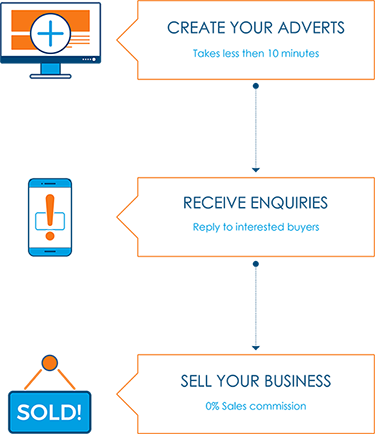Why it’s a great time to buy an independent business

Buy a small business now as they’re the ones bucking the trend
You can’t escape all of the bad press out there. It’s hell on the high street for many of the big brands. And it’s a period that’s marked the demise of the department store, as well as the downfall of some of the most prominent names in UK retailing. House of Fraser’s on the brink. John Lewis is posting profit warnings. Maplin – gone (for the time being, at least). Toys R Us – gone. And BHS, as you’ll recall, went down a some time ago too. But while these household names might be closing down – or are in serious dire straits – there is some positive news to share with those of you interested in buying a small business.
That’s right. It’s not all doom and gloom on the high street. In fact, it could well be the perfect time to start or buy an independent business. Why’s that? You might ask.
Well, for a start, it’s about size and maneuverability. It’s about being nimble. It’s about being quick to adapt and evolve. And it’s also about being a one-of-a-kind, standout local business. Because when you’re truly independent, you’re not answerable to a fat cat lounging on their gin palace in the Med. Buy a small business today and you can be stronger away from the herd. You can be innovative and refreshingly different. In a world that is drearily dominated by mega-brands, it’s a chance for the small person to make a stand.

Independent businesses aren’t totally immune to the disease affecting our high streets, of course. But they might just be a little more resilient.
Rents and rates are the biggest problem facing the big shops and department stores. Their physical footprint comes at a cost. And it’s becoming difficult to compete with the likes of Amazon and other online retailers. Buy a small business, though, and there’s a chance you’ll benefit from small business rate relief.
News of Sainsbury’s and Asda’s merger hit the news again recently. Which is another attempt by the traditional big shops to compete with young upstarts – this time, though, they’re competing with Lidl and Aldi, the discount supermarkets who have come in from mainland Europe. But, there’s something else that is chipping away at the supermarket’s trade. Something that the small players can capitalise on. And that’s a shift in buyer behaviour. These days, people no longer buy a week’s worth – or even a month’s worth – of groceries. Instead, they are more inclined to shop when they need something, merely buying the ingredients for that evening’s meal. And isn’t that great for the small independent business? Butchers, bakers, grocers and delicatessens can all benefit from this.
Consumers haven’t just changed the frequency of their shopping trips, they have become more discerning over time as well. For a generation that is more aware of our global footprint, sourcing the best price or getting caught up in BOGOF deals is no longer their most influential buying decision. It’s more important to know where the produce has come from, how it’s packaged and what care has been taken in the field-to-plate journey. So, if you’ve bought, or are thinking of buying a small business, you’ll be well placed to sell higher welfare and more artisan products that appeal to Baby Boomers at Millennials alike.

Love it or hate it, social media plays its part too. There’s a movement towards building communities – whether that’s online or in the real world. And, while the big brands will try to exploit social media, plenty of us still see them as faceless corporations. If you’ve started or are ready to buy a small business, though, you can use these marketing platforms to engage with your local community. Be creative, be different and be independent. You’ll be ‘liked’ a lot more than the corporate competition.
Another advantage of running an independent businesses is that they can be kept pretty lean. Start your own small business, and for a while you are that business. You might have to work harder, but you can employ staff when you really need them, keeping your costs and overheads low. Big businesses, on the other hand, are often quite bloated. They carry the heavy burden of maintaining a work force and can’t easily jettison all of the administrative headaches that come with that.
Starting a small business isn’t without risk, of course. But the economic climate could well be perfect to make that move. What questions should you ask when buying a small business then? Well, like any big decision, you need to spend time thinking about whether it’s the right career choice for you. Talk to those who’ve been there before, read up on the industry you’ll be working in and, above all else, run through this checklist for buying a business.


